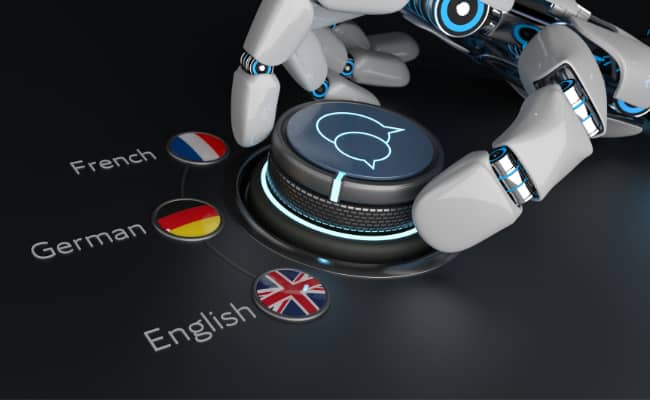Artificial Intelligence in Translation: An Indispensable Partner for Translators

The advent of artificial intelligence (AI) has revolutionized numerous sectors, and translation is no exception. In the linguistic realm, AI has brought about significant advancements, enhancing the efficiency of translations while opening up new perspectives. However, it is crucial to emphasize that, despite its utility, AI can never replace the human translator.
One of the most impactful contributions of AI to translation is the use of Neural Machine Translation (NMT). This technology, based on neural networks, enables a deeper understanding of linguistic contexts, thereby improving the quality of translations. NMT systems can analyze entire phrases, taking into account linguistic nuances and subtleties, providing smoother and more natural results.
Nevertheless, even with these advancements, AI cannot replace the human translator. Translation goes beyond the mere conversion of words from one language to another. It requires a nuanced understanding of cultures, contexts, and linguistic subtleties specific to each domain. Human translators bring expertise and cultural sensitivity that surpasses the algorithmic skills of AI.
Moreover, translation challenges such as wordplay, idiomatic expressions, and cultural references remain difficult terrain for automated systems. Human translators can interpret these subtle elements and adapt their translations accordingly, yielding results that are much more faithful to the original meaning.
Artificial intelligence proves to be a powerful tool for translators, freeing them from repetitive tasks and allowing them to focus on more creative and contextual aspects of their work. Translators can use AI systems to save time on straightforward translations and dedicate themselves to more complex projects that require human expertise.
In conclusion, artificial intelligence has undeniably revolutionized the field of translation, offering quick and efficient solutions. However, it cannot replace the human translator, whose role extends far beyond linguistic conversion. The future of translation relies on a synergistic collaboration between human skills and AI capabilities, ensuring high-quality, precise translations tailored to each context.